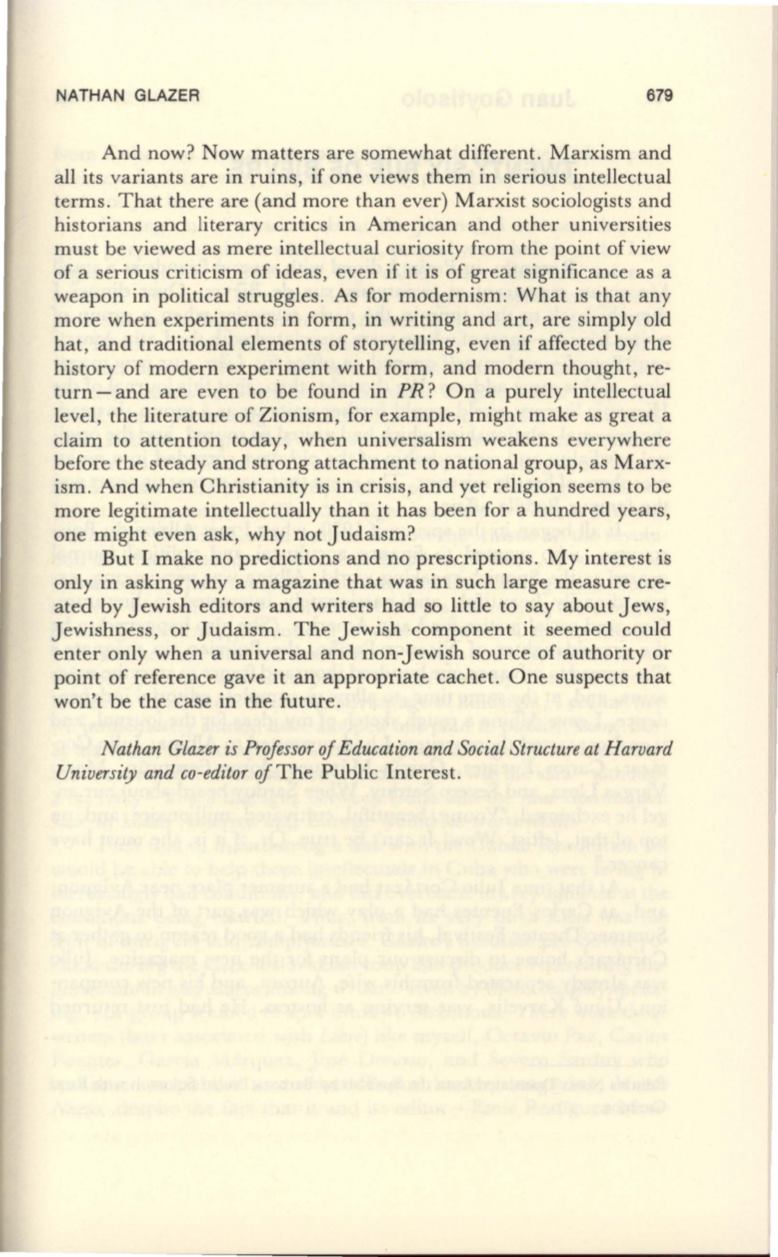
NATHAN GLAZER
679
And now? Now matters are somewhat different . Marxism and
all its variants are in ruins , if one views them in serious intellectual
terms . That there are (and more than ever) Marxist sociologists and
historians and literary critics in American and other universities
must be viewed as mere intellectual curiosity from the point of view
of a serious criticism of ideas, even if it is of great significance as a
weapon in political struggles . As for modernism: What is that any
more when experiments in form, in writing and art, are simply old
hat, and traditional elements of storytelling, even if affected by the
history of modern experiment with form, and modern thought , re–
turn- and are even to be found in
PR?
On a purely intellectual
level, the literature of Zionism, for example, might make as great a
claim to attention today, when universalism weakens everywhere
before the steady and strong attachment to national group, as Marx–
ism . And when Christianity is in crisis, and yet religion seems to be
more legitimate intellectually than it has been for a hundred years,
one might even ask, why not Judaism?
But I make no predictions and no prescriptions . My interest is
only in asking why a magazine that was in such large measure cre–
ated by Jewish editors and writers had so little to say about Jews,
Jewishness, or Judaism. The Jewish component it seemed could
enter only when a universal and non-Jewish source of authority or
point of reference gave it an appropriate cachet. One suspects that
won't be the case in the future.
Nathan Glazer is Professor ofEducation and Social Structure at Harvard
University and co-editor
of
The Public Interest.


